United Airlines flight 2546 avoided traffic getting from O'Hare to Midway on Monday by taking the shortest route possible for an airplane its size:
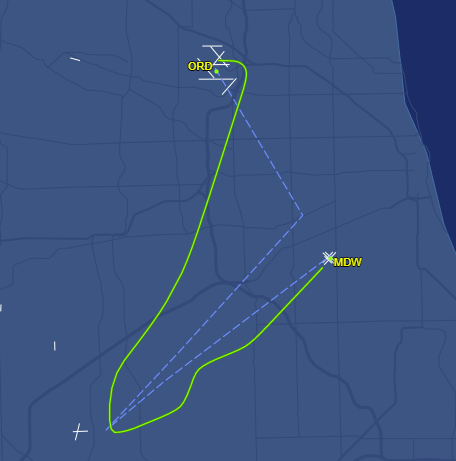
The 13-minute flight got all the way up to 4,800 feet MSL to reposition an Airbus A320 the White Sox needed to get to New York later that day. The Sun-Times explains:
Although the flight did happen, it was merely the airline repositioning a charter plane, according to United spokesman Charles Hobart.
And although the flights have no passengers, they still appear on flight-tracking websites because of federal rules about airlines sharing their flight manifests, he said.
“This is very common, not only for United but for other major carriers,” Hobart said.
One social media user deduced from the plane’s tail number that this was the same charter plane used by the White Sox.
The White Sox confirmed it was their charter plane.
The Sun-Times helpfully concludes, "A drive from O’Hare to Midway during the same time, around noon on Monday, would’ve taken 55 minutes."
Update: In a cute Daily Parker coincidence, the White Sox and Yankees postponed tonight's game due to Canadian smoke.
More update: Yes, I can see why they cancelled the game. Current AQIs around New York are in the high 300s to low 400s, including a reading of 460 in the ironically-named Fresh Kills. At IDTWHQ, we have 85, which is also not great but not going to suffocate my dog, either.
A persistent weather system continues to bring smoke from Canadian wildfires through the Chicago area:
You may have been wondering about the recent vibrant, reddish sunsets and hazy skyline in Chicago. What’s behind these phenomena can be traced back to a combination of particulate matter and smoke from Canadian wildfires and pollutants that create ground-level ozone.
While the red sun and milky-looking skies might give the city an otherworldly, even awe-inspiring appearance, Chicagoans — especially those with respiratory or pulmonary disorders, as well as active children and adults — should take precautions.
Because blue light has the shortest wavelength, it’s scattered the most effectively. But a high concentration of particulate matter in the air, which may travel from faraway fires carried by the wind, allows longer wavelengths of orange and red light to scatter around as well. Recent dust storms have also caused vibrant, colorful sunrises and sunsets in the state as well.
Right now at Inner Drive Technology World Headquarters, our outside weather station shows an AQI of 40, with pm2.5 the primary pollutant. So at least for now, the smoke isn't reaching the ground. But I only have to look out the window to see what NOAA sees from space:
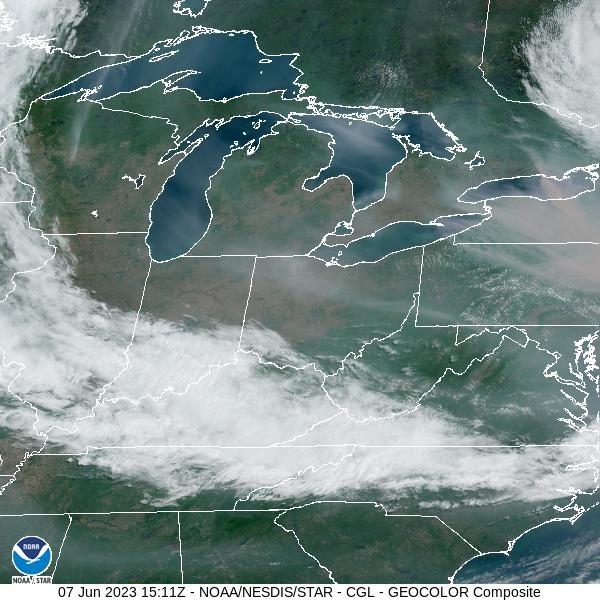
Just a few stories I came across at lunchtime:
- In an act that looks a lot like the USSR's scorched-earth retreat in 1941, Ukraine accuses Russia of blowing up the Kakhovka Dam on the Dnieper River, which could have distressing follow-on effects over the next few months.
- A former Chicago cop faces multiple counts of perjury and forgery after, among other things, claiming his girlfriend stole his car to get out of 44 separate speeding tickets.
- James Fallows explains what probably happened to the Citation jet that crashed in rural Virginia over the weekend after two F-16s scrambled to intercept it over Washington.
- Molly White explains the SEC's case against Binance.
And finally, giant-sized coconut crabs may have stashed away the remains of lost pilot Emelia Earhart, and scientists think they know where.
Between my overflowing PTO balance and getting two "floating" holidays every year, I decided I have enough free time to extend my vacation by a day to get stuff done. I'm glad I did. Cassie provided her vet with a really good sample of...things that her day care needs to know about, I've done 3 loads of laundry and queued up a 4th, I've gone through the important receipts from the trip, and I've loaded all 740 photos up into Lightroom. I've also done some Apollo-related stuff, so some of today went to other people.
I still have stuff to do, so I'm not going to get to the photos today. Probably not until Friday or Saturday, truth be told. And I've got a freelance project for a local non-profit that I'd hoped to start on the flight to London but somehow didn't find time to do.
I did finish four really good books, including The Rise of the Warrior Cop by police reporter Radley Balko; There Is No Antimemetics Division by British author and programmer Sam "qntm" Hughes based in party on some of his articles for the SCP Foundation (which you should absolutely start reading whenever you want to lose yourself in some fun and cool shit); techno-thriller Daemon by Peter Suarez; and Death of the Great Man by Peter Kramer. I recommend all of them, especially the last two.
I will now...waste some time on the Internet, and then go walk Cassie.
I'm finally at Heathrow about 10 minutes from boarding. Whew. I've got loads of photos to go through, and hours of sleep to catch up on. I am ready to be home.
Tonight I'm going to spend as much time as possible on the couch with Cassie. I've got a lot of pats for her.
I learned on this trip that the German word for the small computer you carry everywhere is "Handy." That got me thinking.
In the US we call it a "cell phone." Most of the rest of the Anglosphere calls it a "mobile." Same in Czech ("mobilní telefon"), French ("téléphone mobile"), Spanish ("teléfono móvil") and most other European languages.
I find this interesting because in most parts of Europe, the name describes what the thing is. In German, it describes how you use it. But in the US, we still use a phrase that describes the underlying technology. It occurred to me that a US-based company invented the thing in the early 1970s, and it came into broad use in the US probably 10 years before the rest of the world.
But I wonder if that's also cultural? Are we Americans more interested in the tech than the thing itself? And why do Germans call it by an English name that has nothing to do with either the tech or its use?
Hypotheses welcomed.
The billion-pound London rail project called "Crossrail" when it began opened a year ago as the Elizabeth Line. I rode it for the first time to West Ealing last Sunday, and thought it absolutely the slickest, cleanest train in the UK. (I'll ride it again tomorrow thanks to industrial action and construction on the Piccadilly Line.)
British Airways pilot Mark Vanhoenacker takes it every time he comes home from a trip, and loves how it connects the city in all new ways:
Running from Reading and Heathrow Airport in the west to Shenfield and Abbey Wood in the east, the Elizabeth line brings an additional 1.5 million people within 45 minutes of the capital’s busiest districts; eases congestion on older lines; and makes London more accessible to all, as wheelchair users can reach its platforms from street level. As a pilot who commutes to Heathrow — I fly the Boeing 787 for British Airways — I’m often among its 600,000 weekday riders. The line, which runs alongside the Heathrow Express, offers another comfortable way to get to work.
[T]he line empowers travelers to leave behind the familiarities of Zone 1 — the often tourist-clogged core of the city’s transport network — and embark on fast, inexpensive journeys to fascinating outer-London destinations.
On the line’s northeastern branch lies the market town of Romford. Start at the Havering Museum, whose exhibits include a model of the long-gone Havering Palace, where Queen Elizabeth I occasionally stayed. You’ll also learn about Romford’s link to William Kempe, an actor in several of Shakespeare’s original productions, who morris danced around 100 miles from London to Norwich in 1600, and about the weights and measures that once set standards in Romford’s market.
It’s fitting, then, that the first station beyond [the eastern Thames] tunnels is Woolwich, where armaments were manufactured for around three centuries, including by one Henry Shrapnel. Woolwich was also renowned for music — its Royal Artillery Band, Britain’s first formal military band, was organized in 1762 — and for football: Arsenal, based today in Islington and still nicknamed “the Gunners,” was founded here in 1886 as a team for armaments workers.
Between my arrival this afternoon and my departure tomorrow afternoon I'll be in the UK only 23 hours, many of them in my hotel room asleep, so I won't have time to explore the places Vanhoenacker describes. But I have a hunch I'll return to the London before too long.
I took a quick trip to Berchtesgaden, Germany, this afternoon. I think it might be the most beautiful place I've seen in Europe:
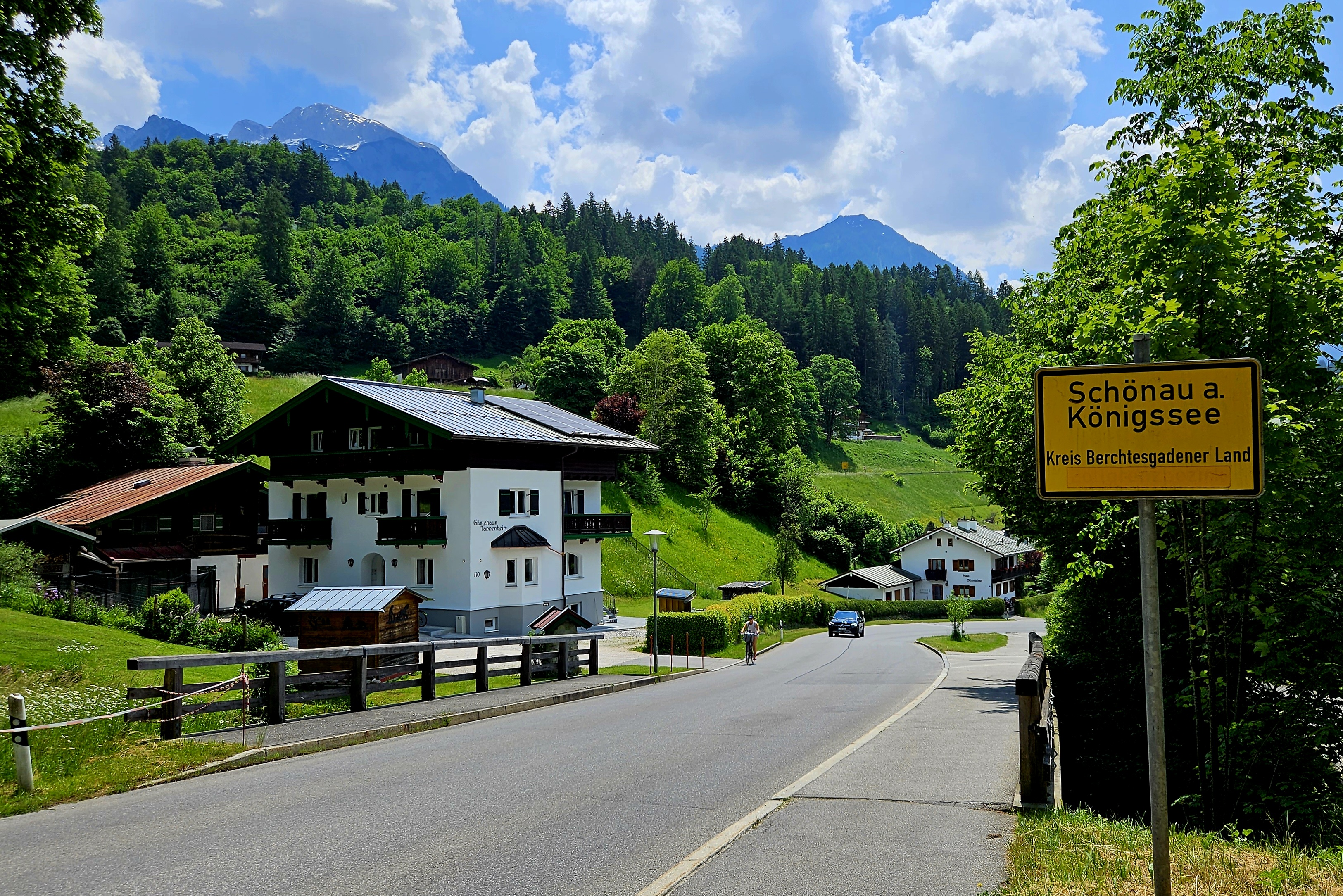
I didn't stay too long, but I did get in a 2½ km walk that included part of a river path:
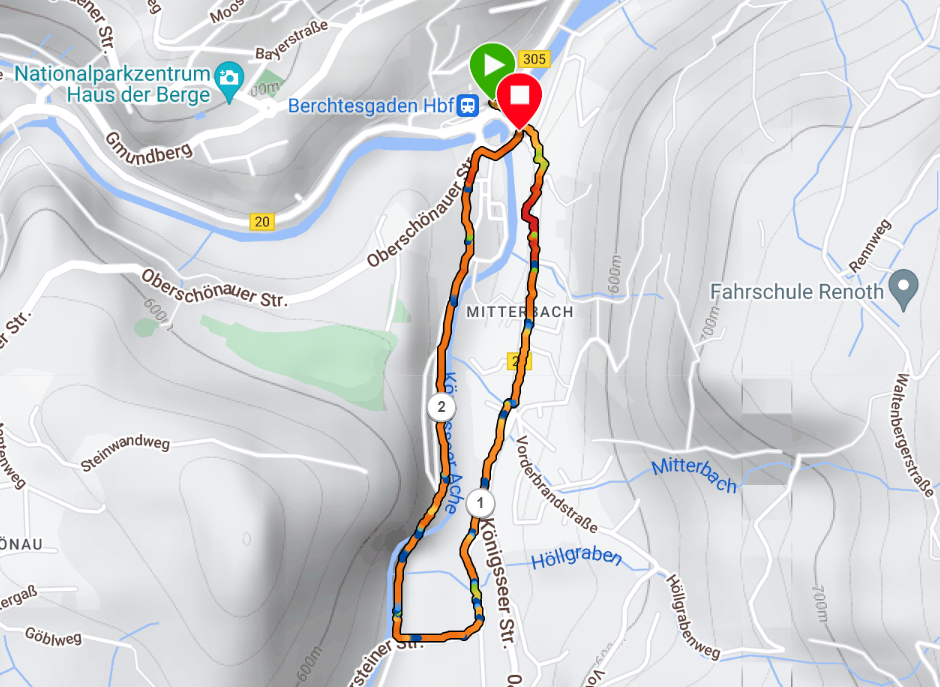
The whole area looks like Bavarian storybook hour:
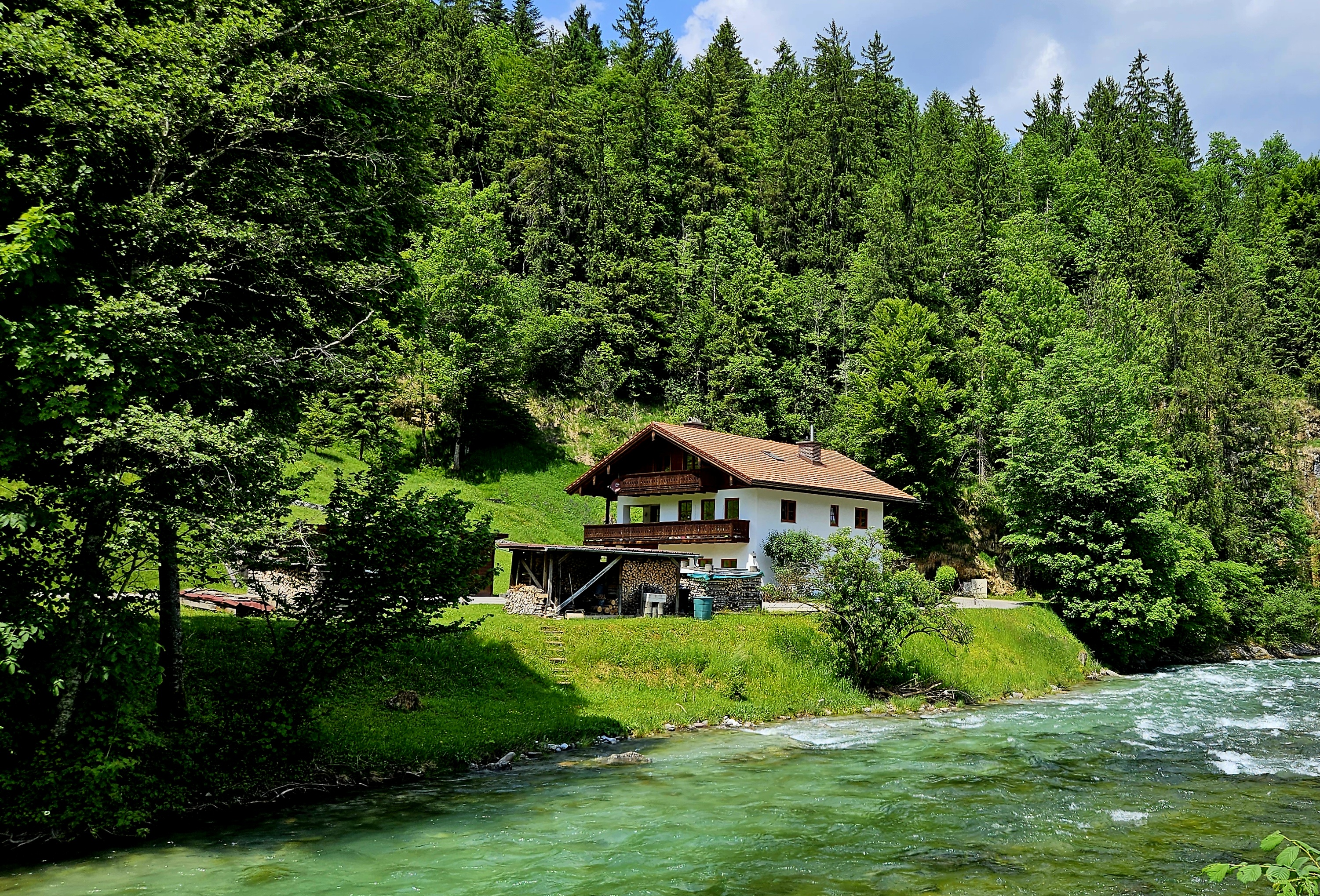
To get there, you take a train from Freilassing, a nondescript town just over the German border from Salzburg. The train meanders through Alpine meadows at a slow but steady pace, passing through this kind of scenery:
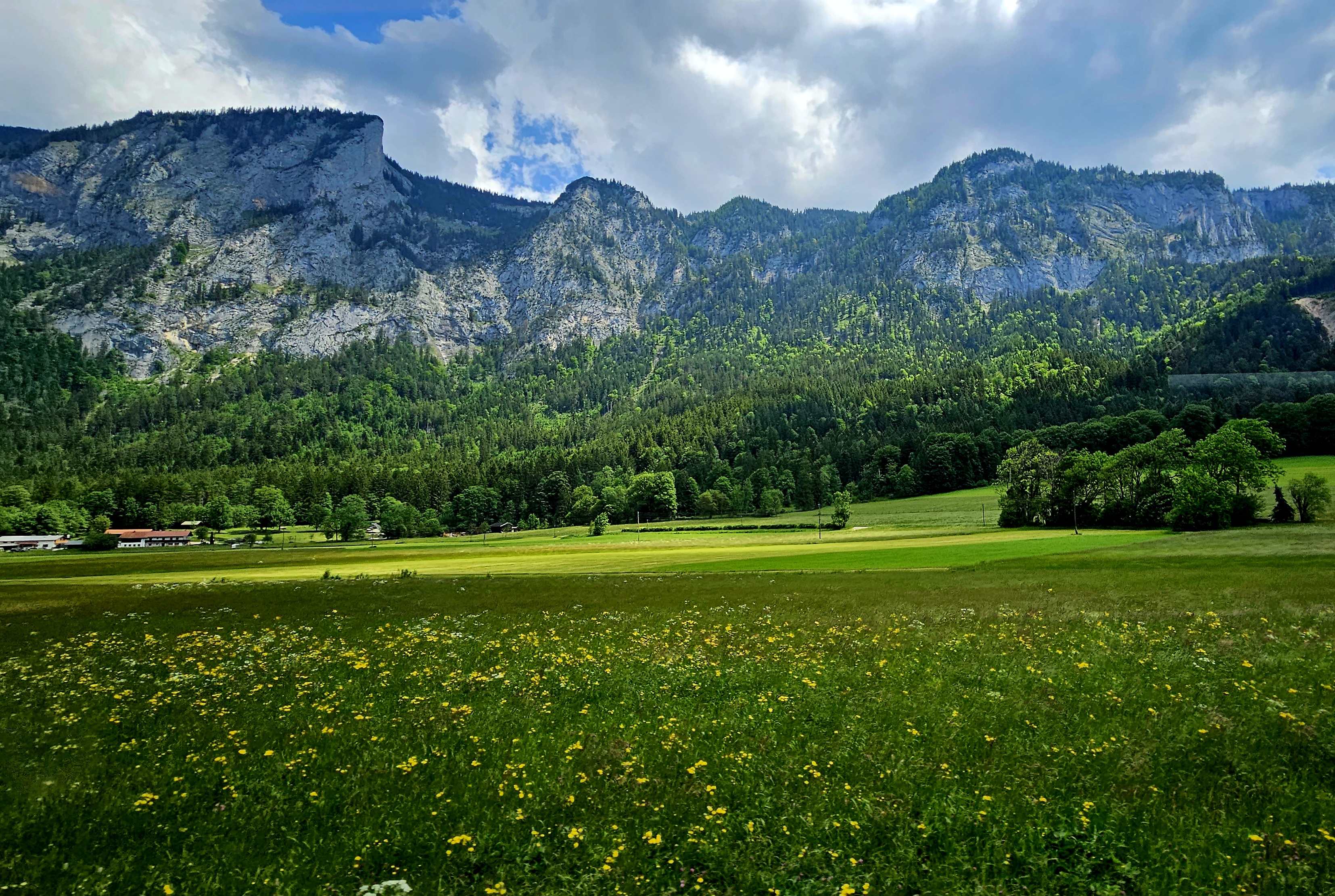
I will pass through again and make sure to stay longer.
I did have a bit of an uncomfortable moment at the border. The German police held the train from Salzburg for a few minutes before letting us off, as four armed officers walked through from end to end. It was at about that moment that I remembered I left my passport in my room safe back in Austria. Turns out, they didn't check passports (both countries are in the Schengen area), but still. I do carry my passport card with me at all times overseas, but that's only proof of citizenship at US land and sea borders—and, crucially, at US consulates and embassies. But I don't believe the Bundespolizei would recognize it as such.
Not that I needed to worry. I just have to be more careful about that. (I did bring my passport book to Bratislava, for instance.)
Wow, do I love European trains. They're fast, clean, and way less expensive than flying. Except they do fly, as my train from Vienna to Salzburg did for part of the trip:
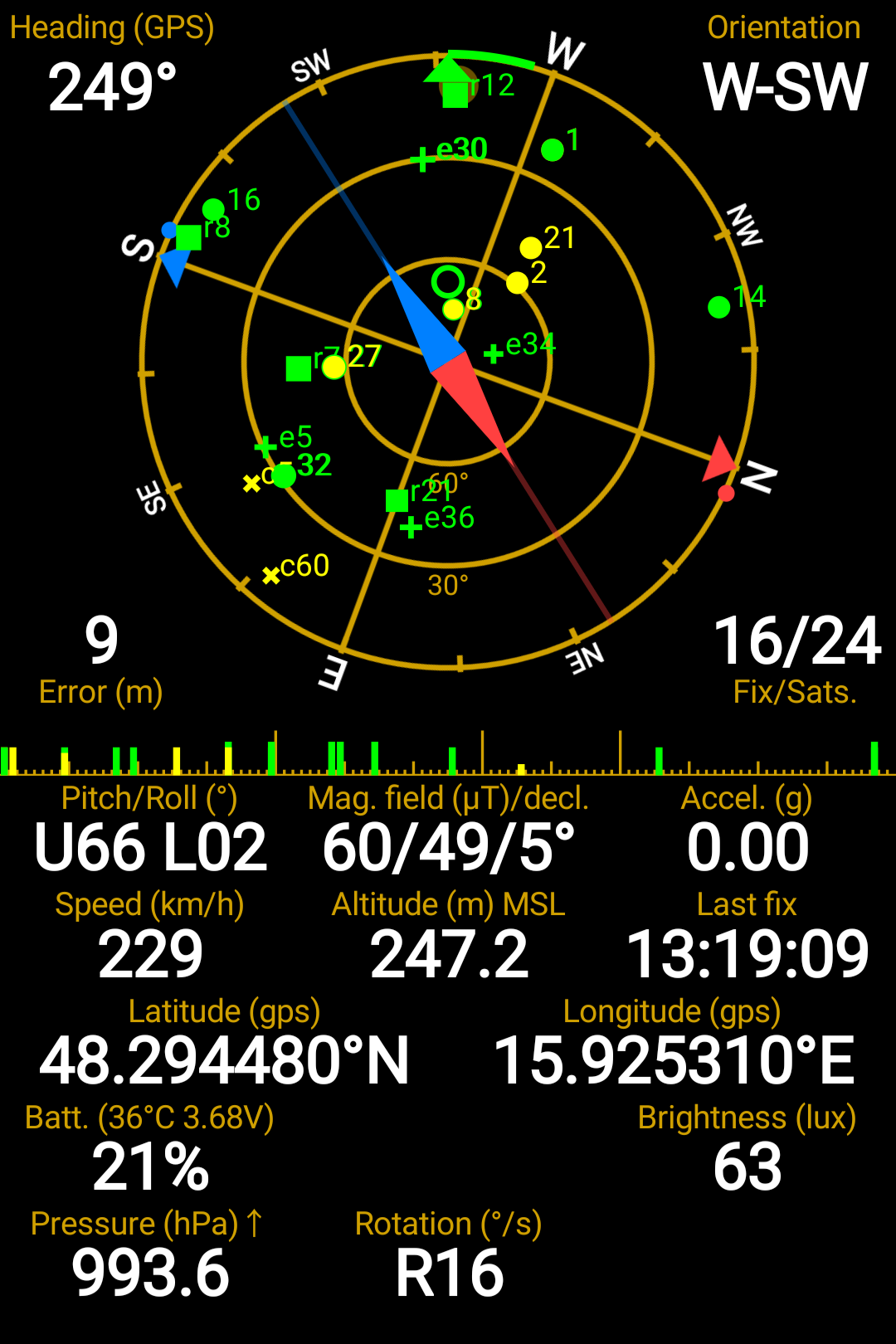
That screen capture from my phone's GPS monitor shows us moving at 229 km/h (143 mph) roughly here.
And then I landed in Salzburg. It's cute. I might even say lovely. But it's tiny—only 150,000 people or so—so it doesn't rise to Prague-like overwheliming beauty.
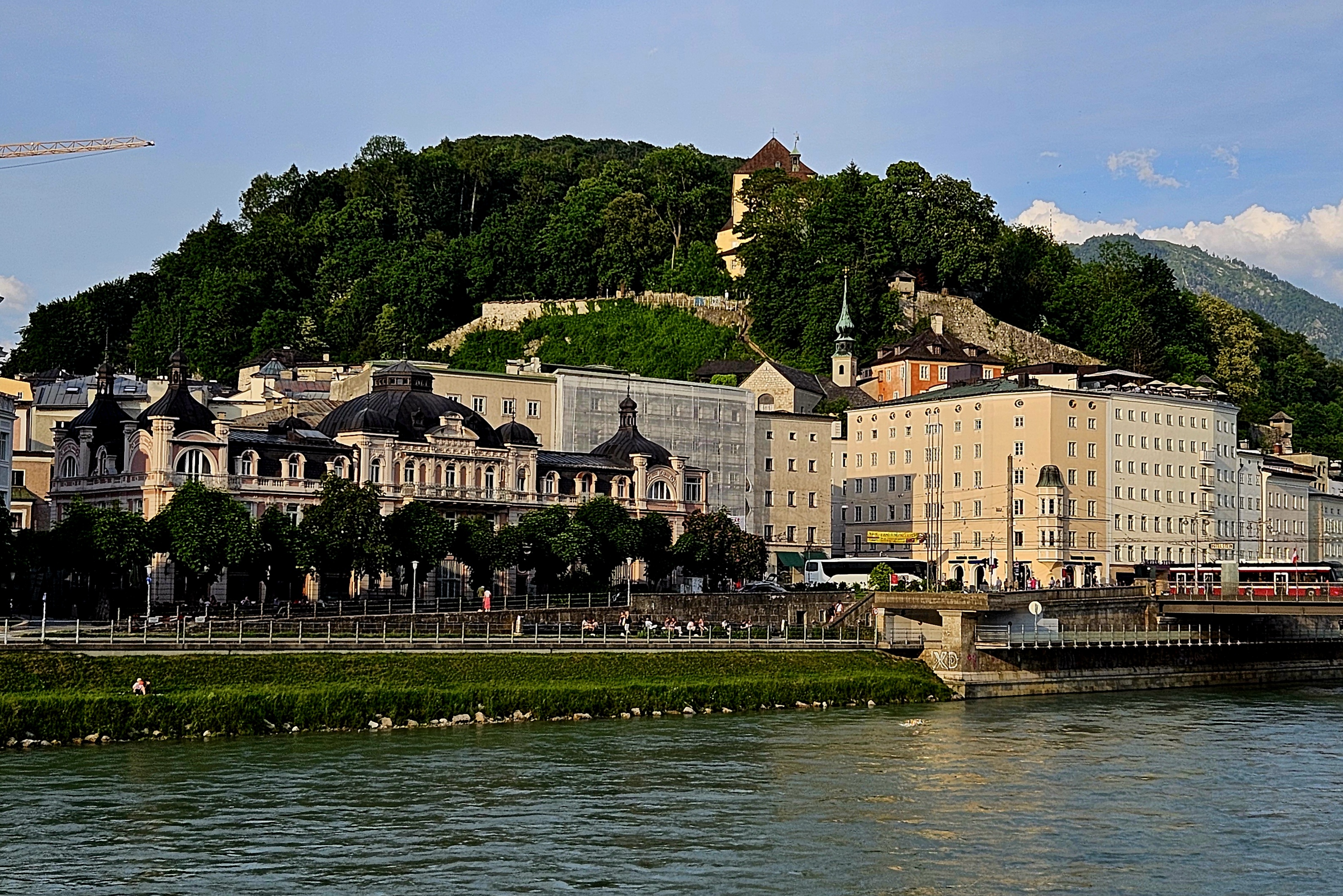
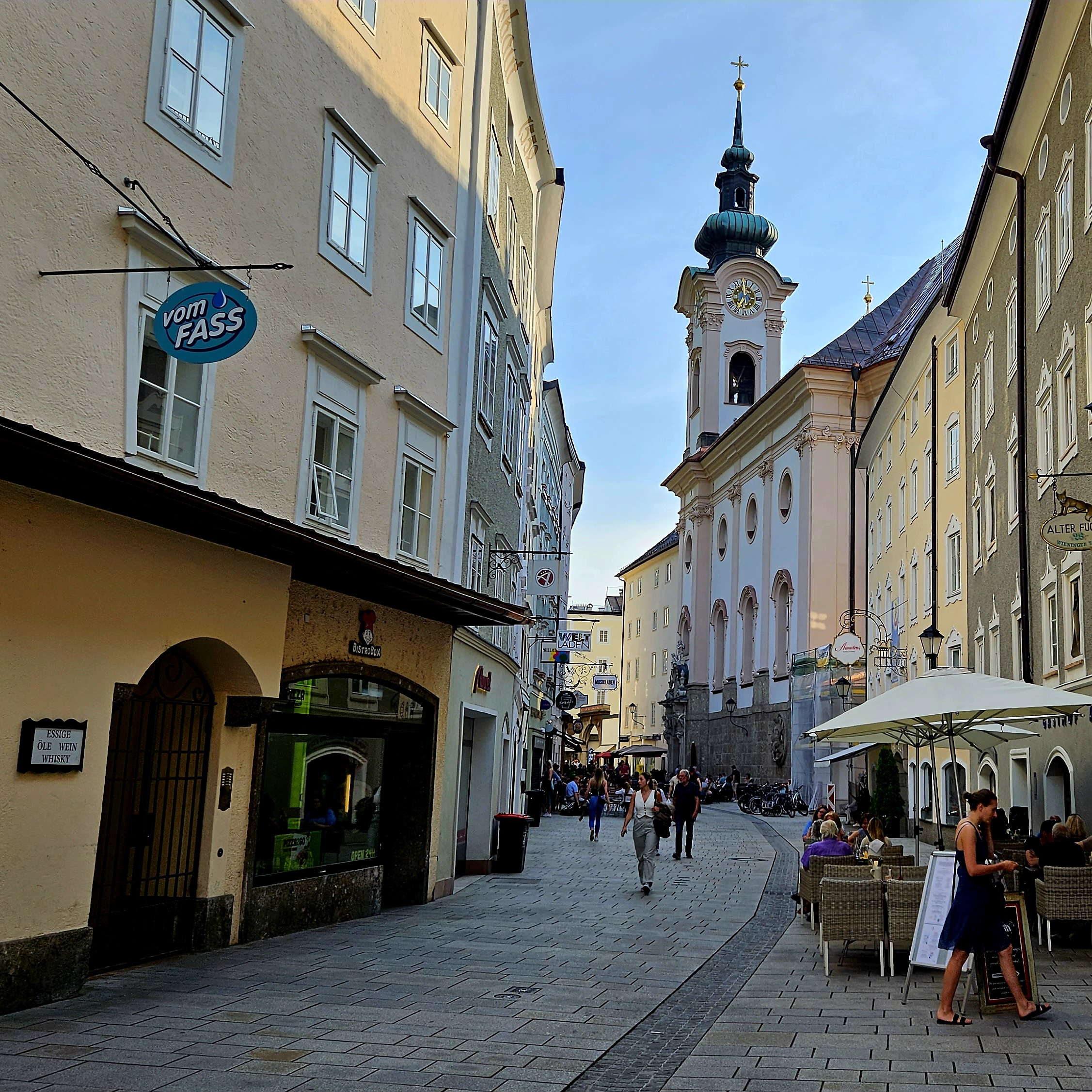
But it's a lot less touristy than I thought. It turns out, Salzburg is a college town more than anything else, with apparently one of the best psychology programs in the German-speaking world, as my bartender told me last night.
Today I popped over to Berchtesgaden, Germany. That post will hit later tonight.
Thanks in part to Conservative Party mismanagement of the UK transport sector for the last 13 years, things have gotten a bit fraught in the Old Country. And now, I get to spend a bit of extra time getting from Gatwick to my hotel on Saturday:
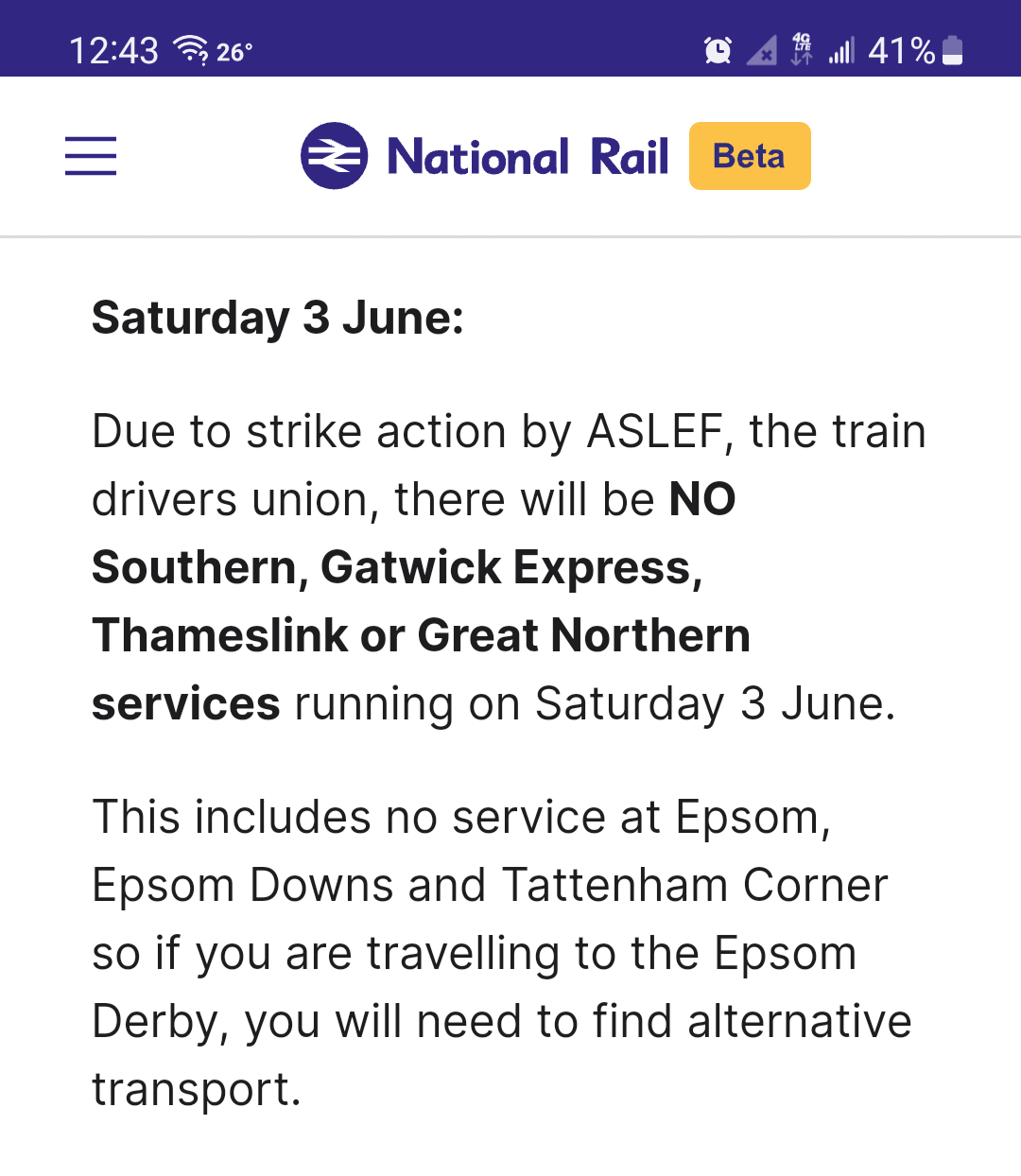
The Gatwick Express takes about 30 minutes from the airport to London Victoria Station. There is no other train option.
Instead, it looks like I can take a cab straight to my hotel for about £90, or a bus to bloody Heathrow and the Elizabeth Line for about £25. The former will take about an hour. The latter about 2 1/2.
So, I'm on vacation. No expense account. No schedule. Should I spend the extra $55? Sigh.